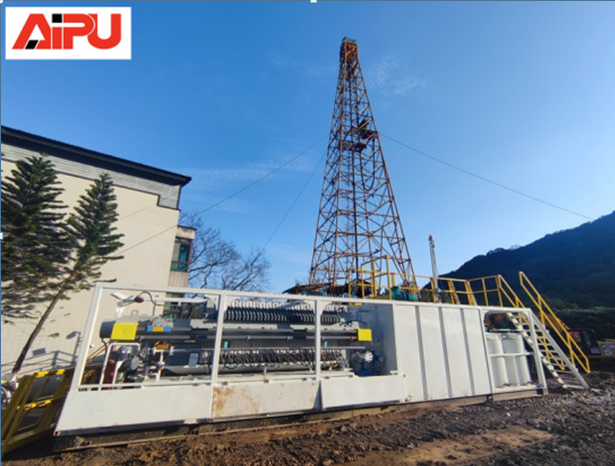Key Strategies for Lifespan Maximization
In the realm of industrial operations, a reliable solids control system stands as a cornerstone for achieving efficiency, sustainability, and cost - effectiveness. Let's explore the multifaceted benefits of such a system.
Enhanced Drilling Efficiency
A reliable solids control system plays a pivotal role in enhancing drilling efficiency. During the drilling process, the system effectively removes unwanted solids from the drilling fluid. This is crucial because the presence of excessive solids can increase the viscosity of the drilling fluid, which in turn requires more energy to pump. By maintaining the proper properties of the drilling fluid, the system allows for smoother and faster drilling operations. Moreover, it reduces wear and tear on the drilling equipment, such as pumps and bits. With less downtime for equipment maintenance and replacement, the overall drilling process becomes more streamlined, leading to significant time and cost savings.
Environmental Protection
Environmental concerns are at the forefront of modern industrial practices, and a reliable solids control system is a powerful tool for environmental protection. The system separates the solids from the drilling fluid, enabling the reuse of the fluid. This reduces the amount of waste generated during drilling operations. Additionally, it prevents the discharge of harmful solids and chemicals into the environment. By minimizing the environmental impact, companies can comply with strict environmental regulations, avoid potential fines, and enhance their corporate social responsibility. This not only benefits the ecosystem but also improves the company's reputation in the market.
Improved Product Quality
In industries where the quality of the final product is highly dependent on the purity of the materials used, a reliable solids control system is indispensable. For example, in the oil and gas industry, the removal of solids from the drilling fluid ensures that the extracted oil and gas are of higher quality. The presence of solids can contaminate the hydrocarbons, reducing their market value. By providing a clean and stable drilling fluid, the system helps in obtaining a purer product, which can command a higher price in the market. This directly impacts the company's bottom line and competitiveness.
Cost - Savings in the Long Run
Investing in a reliable solids control system may seem like a significant upfront cost, but it offers substantial long - term cost savings. As mentioned earlier, it reduces equipment wear and tear, which means lower maintenance and replacement costs. The reuse of drilling fluid also cuts down on the cost of purchasing new fluid. Moreover, by improving drilling efficiency and product quality, the system increases productivity and revenue. The combination of these factors results in a significant return on investment over time, making it a wise choice for companies looking to optimize their operations and finances.
In conclusion, a reliable solids control system is a valuable asset for any industry that involves drilling or handling fluids with solids. Its benefits span across efficiency, environmental protection, product quality, and cost - savings, making it an essential component for sustainable and successful operations.

Enhanced Drilling Efficiency
A reliable solids control system plays a pivotal role in enhancing drilling efficiency. During the drilling process, the system effectively removes unwanted solids from the drilling fluid. This is crucial because the presence of excessive solids can increase the viscosity of the drilling fluid, which in turn requires more energy to pump. By maintaining the proper properties of the drilling fluid, the system allows for smoother and faster drilling operations. Moreover, it reduces wear and tear on the drilling equipment, such as pumps and bits. With less downtime for equipment maintenance and replacement, the overall drilling process becomes more streamlined, leading to significant time and cost savings.
Environmental Protection
Environmental concerns are at the forefront of modern industrial practices, and a reliable solids control system is a powerful tool for environmental protection. The system separates the solids from the drilling fluid, enabling the reuse of the fluid. This reduces the amount of waste generated during drilling operations. Additionally, it prevents the discharge of harmful solids and chemicals into the environment. By minimizing the environmental impact, companies can comply with strict environmental regulations, avoid potential fines, and enhance their corporate social responsibility. This not only benefits the ecosystem but also improves the company's reputation in the market.
Improved Product Quality
In industries where the quality of the final product is highly dependent on the purity of the materials used, a reliable solids control system is indispensable. For example, in the oil and gas industry, the removal of solids from the drilling fluid ensures that the extracted oil and gas are of higher quality. The presence of solids can contaminate the hydrocarbons, reducing their market value. By providing a clean and stable drilling fluid, the system helps in obtaining a purer product, which can command a higher price in the market. This directly impacts the company's bottom line and competitiveness.
Cost - Savings in the Long Run
Investing in a reliable solids control system may seem like a significant upfront cost, but it offers substantial long - term cost savings. As mentioned earlier, it reduces equipment wear and tear, which means lower maintenance and replacement costs. The reuse of drilling fluid also cuts down on the cost of purchasing new fluid. Moreover, by improving drilling efficiency and product quality, the system increases productivity and revenue. The combination of these factors results in a significant return on investment over time, making it a wise choice for companies looking to optimize their operations and finances.
In conclusion, a reliable solids control system is a valuable asset for any industry that involves drilling or handling fluids with solids. Its benefits span across efficiency, environmental protection, product quality, and cost - savings, making it an essential component for sustainable and successful operations.








